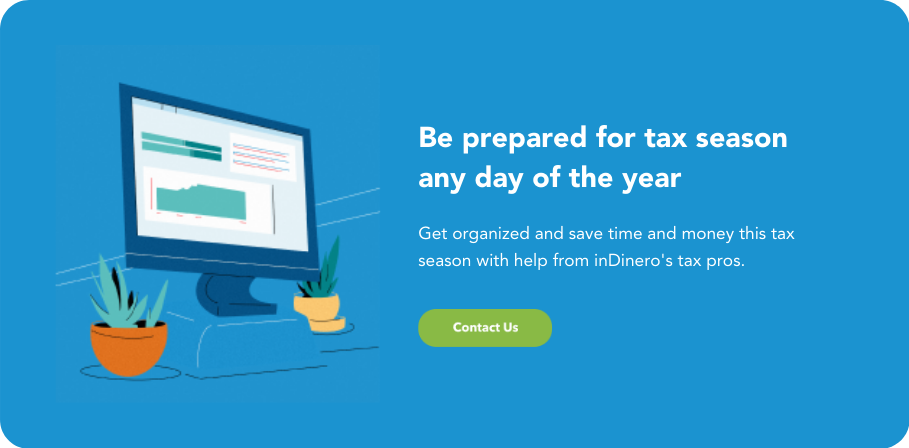Welcome to David in Taxland – a series of tax articles written for business owners. Spoilers: all income is taxable unless it’s not and the moral to the story is to pay and file your taxes on time.
Taxable income is cleverly defined by the IRS. Instead of making certain types of income taxable, and leaving the rest not taxable, it took an opposite position: all income is taxable—unless it’s not. The basic idea is this: any increase in wealth for a taxpayer (individual or business) is taxable unless the IRS provides a specific exclusion or deduction. Note: income can be cash or non-cash (such as fringe benefits).
The IRS doesn’t have to prove that a particular kind of income is taxable; it’s up to a taxpayer to prove that a particular kind of income is not taxable. If only Al Capone knew that. In the 1920s and early 1930s, Capone was the most powerful mobster in Chicago where he committed countless horrible crimes. Capone lived a lavish lifestyle that was obviously well-funded—he flaunted his wealth with mansions, cars, clothing and so on. The IRS argued the money to fund such a lifestyle had to come from somewhere. The IRS won. Capone went to prison—effectively ending his career as a mobster—for not paying taxes on ill-gotten income!
OK, so you own a business and you’re not a mobster. What’s this got to do with you? I’m glad you asked. If your business or personal wealth is increasing, it’s probably coming from taxable income. When you notice good things happening financially, such as more money in your pocket or your business crushing its quarterly profits—before you celebrate, hit the pause button to consider if all of your taxes are paid. If not, get a quick estimate from your tax pro for current year federal (and state) estimated taxes—and pay it! It’s only time to party, bust out, whoop it up, or (insert your favorite joyful metaphor here) after the taxes are paid! I’ve seen it too many times: the party’s over, the money’s all gone and now the taxes are due. Don’t let this happen—it’s so difficult to dig out of.
The IRS wants you to pay as you earn—and they’re likely to make it costly by assessing penalties and interest if you don’t—so pay estimated taxes. Let’s say your business is currently earning profits. You won’t file your taxes for the current year until next year, but if you wait until then you’ll probably get hit with penalties and interest. Usually, at the end of each quarter, taxable profit should be estimated to calculate estimated taxes due.
And don’t forget about state taxes! When you pay federal estimated taxes, you probably are required to pay state taxes as well—the rates vary from state to state. Ask your tax pro.
Estimated Taxes for C-Corporations
A C-corp is taxed separately from its owners. The IRS is likely to penalize a C-corp for owing too much when the tax return is eventually filed (generally if the annual taxes due are greater than $500). On a quarterly basis, get a good estimate of the taxes due on the prior quarter’s profit and pay using Form 1120-W. You may be able to pay online.
Estimated Taxes for Pass-Throughs Businesses
Pass-through businesses (like s-corps, partnerships, and sole proprietorships) have their income and deductions passed-through to the taxpayer for taxation at the personal (Form 1040) level. The IRS is likely to penalize the owners of pass-through businesses for owing too much when their personal tax return is eventually filed (generally if the annual taxes due are greater than $1,000). At the end of every quarter, get an estimate of the taxes due from that quarter’s profits and pay using Form 1040-ES. You may even be able to pay online. Note for partnerships: make sure to pay estimated taxes on both partnership profits and guaranteed payments. Ask your tax pro.
Estimated Taxes for Employees
Employees complete a Form W-4 that tells their employer how much income taxes to withhold; these withholdings essentially are estimated taxes. Make sure you’re having enough withheld. Also, if you have income in addition to your payroll income, you may get an unpleasant April 15 tax surprise if you don’t make estimated payments on the additional income.
Final Thoughts on Estimated Taxes
The basic objectives of tax filing are to:
- Fairly and honestly report income and deductions
- Correctly complete the required forms and schedules
- File on time
The IRS and state tax agencies are largely tax-return-processing-machines. If you team up with your tax pro to file solid and timely tax returns, it’s unlikely you’ll have tax hassles because your returns will simply get processed, not scrutinized. Poor tax filing practices could open you to scrutiny, time-consuming hassles, and penalties and interest. And in some cases, the costs are extreme—just ask Al Capone.
I believe you started your business to create something awesome—and to earn income for you and your loved ones! Tax hassles won’t help. Pay and file your taxes on time!
For more Taxland tips and insights, be sure to subscribe to the indinero Weekly Digest.
Quick Note: This article is provided for informational purposes only, and is not legal, financial, accounting, or tax advice. You should consult appropriate professionals for advice on your specific situation. indinero assumes no liability for actions taken in reliance upon the information contained herein.




